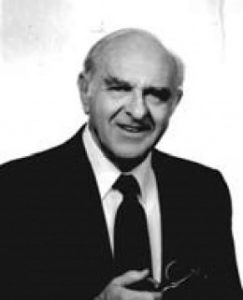Avolio, Mitchell among the 20 most-influential scholars in industrial and organizational psychology
A study forthcoming in the journal Industrial and Organizational Psychology has named Bruce Avolio and Terence Mitchell among the top 20 most-cited researchers—of all time—in the field of industrial and organizational psychology (I-O psychology).
Mitchell is a professor emeritus of management and Avolio is a professor of management and the Mark Pigott Chair in Business Strategic Leadership at the University of Washington Foster School of Business.
They are tied at #18 among nearly 9,000 scholars considered for this empirical measure of influence in the field. The ranking, compiled by researchers at George Washington University, tallies the number of times each researcher is cited in I-O psychology textbooks, as well their total number of citations in a comprehensive array of academic journals, books and popular press.
Leader of leadership

Bruce Avolio
Avolio’s work is cited in 19 I-O psychology textbooks and he has10,035 citations over all publications, thus far.
On Foster’s faculty since 2008, Avolio is the founding executive director of the school’s Center for Leadership and Strategic Thinking. He is author of more than 150 published articles and 12 books, and recognized as one of the world’s foremost experts in transformational and authentic leadership development.
Last year, Avolio was named by Clarivate Analytics to a select list of the world’s most frequently cited researchers across the sciences.
In 2008, he was named among the world’s 150 most influential management scholars in the Journal of Management (#133)—along with Mitchell (#35).
Giant of organizational behavior

Terry Mitchell
The latest influence ranking finds that Mitchell also has 19 citations in industrial and organizational psychological textbooks, as well as 8,311 citations in the broader media.
A leading mind at the Foster School since 1969, Mitchell has authored formative research on leadership, motivation, decision making and employee turnover. He has published more than 120 articles in academic journals, delivered more than 120 addresses at major professional conferences, contributed more than 40 chapters to edited volumes and published four books.
And he’s received many accolades. Paramount among them may be the 2010 Lifetime Achievement Award from the Organizational Behavior Division of the Academy of Management.
Contingency theorist

Fred Fiedler
The Industrial and Organizational Psychology study includes one additional Foster School name in its ranking of the discipline’s 50 most influential scholars.
Fred Fiedler, a professor emeritus of management, comes in at #33 on the list, with 16 textbook citations and 976 overall citations.
Fiedler served in the UW departments of management and psychology from 1969 until his retirement in 1993. Though he authored more than 200 scientific papers and several books, he is most famous for introducing the seminal “Fiedler Contingency Model” which changed the way we view effective leadership from a function of individual traits and personal style to a process that responds to organizational and situational context.
One of the great innovators in his field, Fiedler has received numerous awards, including the Stogdill Award for Distinguished Contributions to Leadership, the Society for Industrial and Organizational Psychology award for Outstanding Scientific Contributions, the American Psychological Society’s James McKeen Cattell Award, and the Distinguished Educator Award from the Academy of Management.
